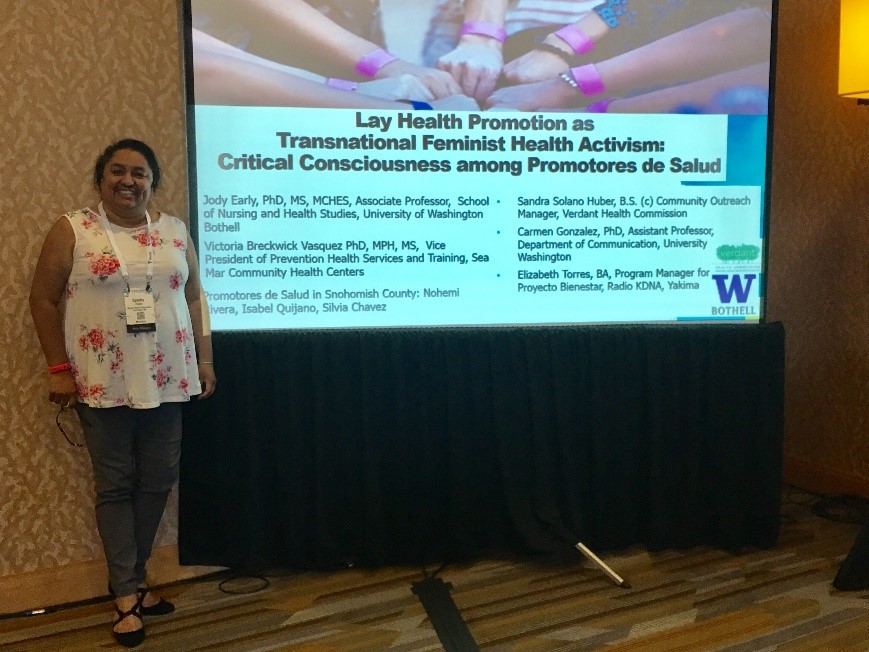Partnerships, Promotores, and Public Health (Oh My!)
Latinx lay health promoters are primarily women (Promotoras de Salud) who play an important role in their communities by promoting individual and population health. Over two decades of research have established evidence that health interventions involving community health workers (CHWs) and promotoras offer many benefits, including: improved clinical and behavioral health outcomes; increased utilization of health services by non-majority groups; reduced medical costs; greater social connectedness; and increased social capital within Latinx communities. Less discussed in the literature is the perceived impact of lay health promotion on the individual and how it relates to Freire’s construct of “conscientiziation” (critical consciousness). What happens over time to women who are involved in their communities as promotores, or “lay health workers”? Do they become more civically engaged? Do they pursue formal education? What barriers do they face in practice, and how can organizations and health systems in WA best support their involvement in primary care? These are the primary questions that Associate Professor, Jody Early, along with collaborators, Sandra Solano-Huber (Community Outreach Manager at Verdant Health) Dr. Victoria Breckwich Vasquez (VP Prevention and Health Services at Sea Mar Community Health Centers) and Assistant Professor, Dr. Carmen Gonzalez (Dept of Communication, UW Seattle) set out to explore in their qualitative study. Over the course of 18 months, the team interviewed 28 promotores around the state.
Participants completed semi-structured, in-depth interviews in Spanish or in English. Emergent themes fell into the following categories: early life, motivation and aspirations; facilitators and barriers to lay health promotion; settings for practice; religious and mission-driven sense of purpose; critical consciousness, civic engagement, education, and social capital. The presentation included the voices of promotores around the state (video) and provided strategies for improving training, reducing barriers, and developing tailored resources that enhance promotoras’ ability to promote and advocate for healthier communities.
Results of this study will be used by Verdant, UW Bothell, Sea Mar, and other organizations to inform training for promotores and lay health workers in WA. The findings will also help to strengthen and improve lay health models and organizational support for Latinx community health workers. The team, represented by Jody and Sandra, presented their findings at the American Public Health Association’s Annual Meeting in San Diego, CA, in November 2018. Their oral session, “Lay health promotion as transnational feminist health activism: Critical consciousness and collective efficacy among Promotoras de Salud,” was part of APHA’s Women’s Caucus. A video highlighting some of their findings can be found here.
